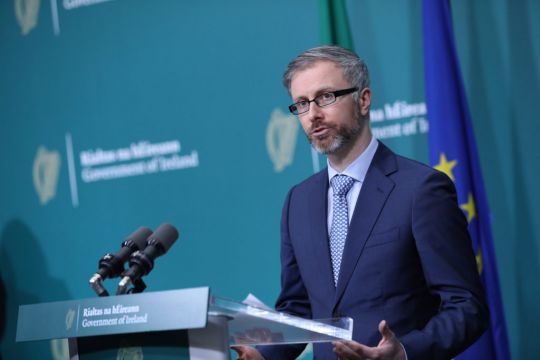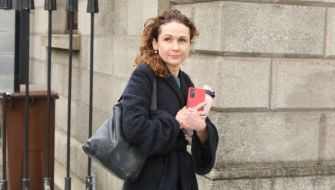The Minister for Children has refused to rule out a future State apology for residents of Direct Provision as he acknowledged the system “didn’t meet basic human rights”.
Roderic O’Gorman made the comments on Friday as he unveiled the Government’s White Paper to replace the centres with an international protection system by 2024.
Direct Provision began as a temporary measure for asylum seekers entering the country more than 20 years ago, and has been heavily criticised by organisations including the UN, Amnesty International and the Council of Europe in that time.
Asked on Friday if he would consider a state apology, similar to those granted to survivors of institutions such as mother and baby homes and the Magdalene Laundries, Mr O’Gorman said he was happy to engage with groups on the issue.
Mr O’Gorman said: “I’m very aware of the criticism of how Direct Provision has impacted on children in particular.
I’m very conscious that this system has not served children well up to this point
“The Children’s Ombudsman has written some extremely critical reports.
“On Wednesday, we presented this White Paper to the Children’s Ombudsman and to the Irish Human Rights and Equality Commission, and I’m sure that they will all give their own views on the system.”
He added: “I’m very conscious that this system has not served children well up to this point. As I say, I’m happy to give consideration to the state’s wider statements in terms of the system over the last 20 years.
“But my focus right now is actually creating this new system and ensuring that no more children and no more adults go through a system that doesn’t meet their basic human rights.”
People in Ireland want to see Direct Provision ended.
I am absolutely committed to dismantling the failed system and replacing it with a new model that is rooted in human rights.#EndingDirectProvision pic.twitter.com/2VyX02hQGn— Roderic O’Gorman TD (@rodericogorman) February 26, 2021
Advertisement
Under the new proposals, the Government will adopt a two-phase approach.
Phase one will see asylum seekers accommodated in one of six reception and integration centres, set to be built around the country, for a four-month period.
During this phase, the guiding principle will be to encourage integration from day one.
Vulnerability assessments will be undertaken, English language training will be provided and applicants will be linked to employment services.
Phase two will see applicants moved to community accommodation, described as “own door, self-contained houses or apartments for families to provide privacy, agency and independence”.
Minister O’Gorman has estimated the cost at €175 million per year, with the first year costs coming in at €225 million.
In addition, capital expenditure costs for the development of the new system and accommodation centres have been estimated at between €449 and €670 million.
Spending
Mr O’Gorman said: “In the context of the last 20 years, Direct Provision has cost the state over a billion euro. And what do we have for all that money?
“We have no tangible assets in the system that everybody regards as not having delivered.
“We have people who’ve gone through really, really difficult experiences. So, by investing this significant amount of capital spending, we will then have state assets which we can continue to use in the future as new.”
Existing contracts for some existing Direct Provision centres may have to be extended before the system is wound down in 2024, the minister said.
Under the current programme, asylum seekers are given a weekly allowance of €38.80 for adults and €29.80 for children.
This is to be replaced with an international protection payment, in line with the supplementary social welfare payment, which starts at €112.70 for people aged 18 to 24, and €201 for people aged 25 and over.
“It will be paid from my department and it will enable people to live independently in the community,” Mr O’Gorman said.
“There will also be an international protection child payment as well, paid similarly to the child benefit rate.”
The new model will focus on integration from day one.
International Protection applicants will first be accommodated in a Reception & Integration Centre, where they can access necessary support services, including legal aid, healthcare, employment and English language support.— Roderic O’Gorman TD (@rodericogorman) February 26, 2021
Mr O’Gorman said Direct Provision had “too often failed to meet and failed to respect the basic dignities of people coming here to Ireland, seeking protection”.
The system “too often was hostile, too often resulted in isolation and it resulted in institutionalisation”.

He added: “We know that the Irish public are kind and compassionate, and as a people we want to extend a welcome, and we want to extend shelter to people coming here seeking protection from war and from violence.”
Taoiseach Micheál Martin said shortcomings of the Direct Provision system had been widely recognised.
He said publication of the White Paper signalled the Government’s intention to “create a more just society, grounded in respect, diversity, tolerance, inclusion and equality”.







